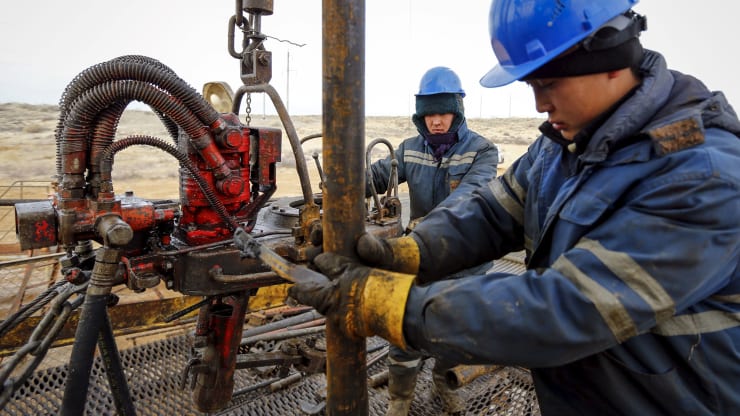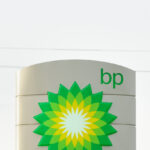CNBC
Sixteen of the world’s leading energy executives met virtually at an unprecedented meeting Tuesday night to talk about how big oil will navigate its biggest crisis in recent history while confronting the coronavirus pandemic.

“Each one of us has had to guide our respective organizations through these difficult times,” said UAE Minister of State Dr. Sultan Ahmed Al Jaber, who is also CEO of Abu Dhabi National Oil Company Group.
He was speaking at the gathering as part of the Abu Dhabi CEO Roundtable series, where the chiefs of oil, gas, and petrochemical companies met to discuss critical issues the industry faces.
“We are seeing encouraging signs of a rebalancing oil market and the beginnings of economic recovery,” Dr Sultan told the industry titans, while highlighting the sector’s critical role in enabling economies to recover and re-open following the pandemic.
“I believe that there have been and there will continue to be valuable lessons we can all share with each other across a range of critical issues, but most importantly, on how to ensure the safety and the well-being of our people, the resilience of our business, and the long term growth of our industry,” he added.
Others at the meeting included Saudi Aramco CEO Amin Nasser, Total Chairman and CEO Patrick Pouyanne, BP CEO Bernard Looney, ENI CEO Claudio Descalzi, Occidental Petroleum President and CEO Vicki Hollub and Reliance Industries Chairman and Managing Director Mukesh Ambani.
Energy executives from Russia, China, Korea, Japan, Egypt, Germany and Spain also joined the invitation-only private session, which was moderated by IHS Chairman Dan Yergin.
‘Worst is behind us’
A senior official who attended the meeting told CNBC that most executives agreed “the worst is behind us” and were “hopeful of a stronger second half.”
The meeting came as the International Energy Agency said global oil demand will rebound next year, but a return to pre-crisis levels could take a number of years.
“We don’t know what the future holds, we really don’t know,” BP’s chief executive Looney told the group. His comments came just a day after his company flagged major asset write-downs and impairments worth up to $17.5 billion dollars in the second quarter, and cut its long term oil price assumption for Brent crude to $55 from $70. The international benchmark is currently hovering at around $40 per barrel on Wednesday morning Asia trade.
Analysts say the future of BP’s dividend, the highest among its big oil peers, is now at risk.
“While I’m optimistic about it, I’m only optimistic because we are focused on the things that we can control and getting our business in shape,” Looney added. “Optimistic, but we don’t know, therefore we are focused on what we can control.”
It comes as global executives attempt to position their businesses around the green shoots of economic recovery, while also safeguarding their employees. The senior official said executives were “cautious of a second wave” of coronavirus infections, but broadly encouraged that demand is coming back.
“We are more optimistic because we are getting out of the lockdowns,” said Total’s Poyanne.
“In electricity and power supply, we were down 20%. We are back to almost normal market levels,” he added. “In our fuels business, we are still not at a standard level, but only 15% and it’s coming back quite quickly,” he said.
Moderator Yergin said the meeting was “extremely timely and demonstrates the UAE’s convening power as an energy leader.”
“It provides a valuable opportunity to recalibrate, bring together the learnings and experience from these last few months, and identify the challenges and energy needs of the world as it comes out of the crisis,” he added.
[contextly_sidebar id=”zQbLznppRT60ElcpQu73P7JwOJLZ1Ga5″]





